April 15, 2025 | 05:12 GMT +7
April 15, 2025 | 05:12 GMT +7
Hotline: 0913.378.918
April 15, 2025 | 05:12 GMT +7
Hotline: 0913.378.918
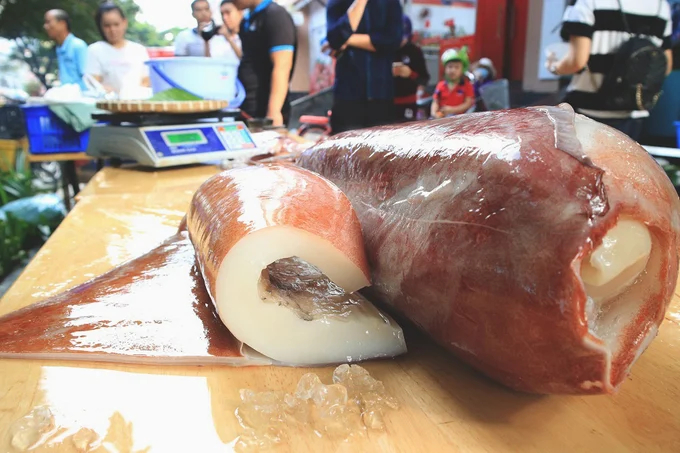
Purpleback squid has great potential, and low price but is less popular in the market. Photo: CTV.
Purpleback squid (the scientific name is Symplectoteuthis oualaniensis) is widely distributed in Vietnam and is concentrated mainly in sea areas over 1000m deep. Although the squid has a high protein content and low lipid content, when it is fresh, it has little sweetness, a slightly acrid taste, is tough and hard when dried, and has a slightly bitter taste, so it is less popular in the market. Therefore, despite its great potential and high annual exploitation output, the price is very low compared to products from regular commercial squid.
Currently, the output of fresh purpleback squid raw materials faces many difficulties, often facing market instability "good harvest, bad loss". Up to 95% of purpleback squid production is dried right on board, so the structure of products processed from purpleback squid on the domestic market is very limited.
Implementing the project to develop and apply biotechnology in the field of the processing industry, scientists from the Research Institute for Marine Fisheries including: Bui Thi Thu Hien, Phan Thi Huong, Dang Van An, Bui Thi Minh Nguyet, Pham Thi Diem and Le Anh Tung has researched and perfected the surimi production process and a number of surimi processed products from purpleback squid.
Once completed and tested successfully, the production technology process has directly contributed to solving the output for purpleback squid raw materials and shrimp by-products in an industrial and sustainable direction.
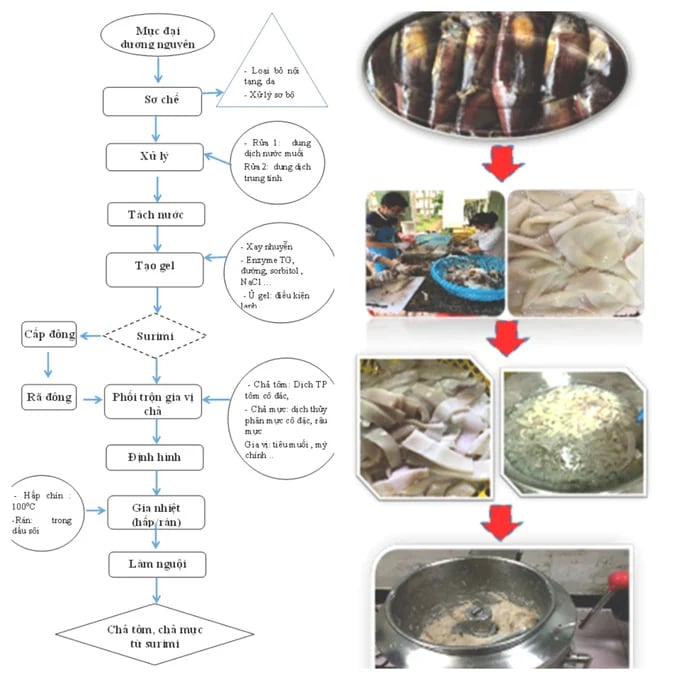
Complete technological process by scientists from the Research Institute for Marine Fisheries. Photo: VNCHS.
At the same time, it contributes to diversifying and improving the quality of aquatic food products, gradually replacing raw products, reducing the rate of pre-processed aquatic products on the market, and reducing post-harvest losses during processing stages.
Master Phan Thi Huong (Research Institute for Marine Fisheries) - project leader said, this technology is a combination of processing techniques to remove the fishy smell, bitterness, and astringency of raw materials with salt water solution with processing techniques and technology for creating squid protein gel using transglutaminase enzyme. Consequently, the project helps to overcome existing problems, improving the use value and economic value of purple back squid raw materials and surimi production technology from purpleback squid.
This is the first time in Vietnam that a technological process for producing purpleback squid surimi has been built, a new product line compared to traditional surimi products (surimi from fish). Squid Surimi is a new product and a very "potential" direction to solve the output for the current purpleback squid exploitation industry.
“The technology offers 1 surimi production process and 2 processing processes for value-added shrimp patties based on squid surimi combined with protein hydrolyzate from shrimp by-products and squid patties from surimi using biotechnology. This is a new breakthrough compared to traditional production technologies", Master Huong shared.
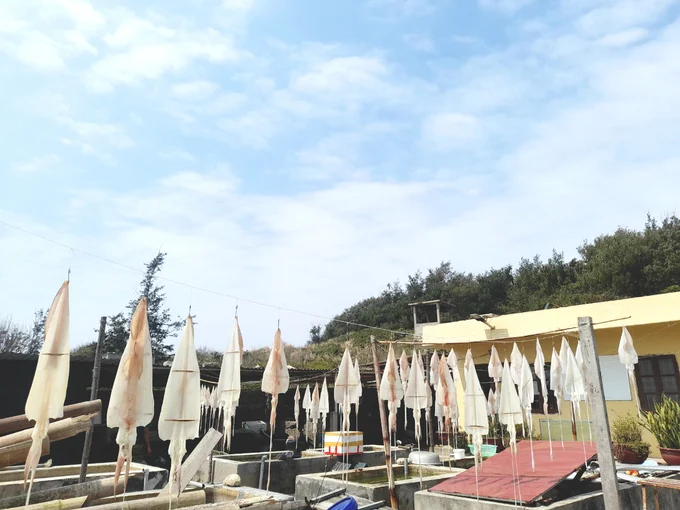
The applied initiative will bring benefits to squid fishermen, solving the output in an industrial and sustainable way. Photo: Dinh Muoi.
According to the Research Institute for Marine Fisheries, the applied initiative will benefit squid fishermen, and solve industrial and sustainable output for purpleback squid raw materials with a very large output in our country.
With this technology, it helps businesses receive technology to be completely proactive in sourcing, limiting losses in quality and value of post-harvest raw materials, and reducing transportation costs. On the other hand, businesses all use local labour, and low labour costs are an advantage when producing and commercializing products. As a consequence, the created products have an increased value of 3-5 times compared to pre-processed products, with a cost of 50-70% compared to other products on the market. The product can completely compete with similar products and imported products on the market.
In addition, this initiative will also help develop value-added food products from seafood, improve the use value and economic efficiency of key aquatic products, ensure sustainable livelihoods for fishing communities, and improve competitiveness for seafood processing enterprises. As a result, this initiative will also contribute to the effective enforcement of fisheries laws and sustainable development of the fisheries industry according to the Government's orientation.
Up to now, to raise squid, fishermen often catch breeding squids from the wild and raise them until they reach adulthood, without mastering the squid farming process. This prompted Mr Nguyen Ba Ngoc (Thanh Hai commune, Ninh Hai district, Ninh Thuan) to learn and research new directions for the marine farming industry in Vietnam. Mr. Ngoc comes from a family with four generations of marine life, he has been attached to the sea for more than 15 years, so he has a great love for the sea.
In 2021, with the accumulated experience, Mr Ngoc will begin piloting the model of breeding and raising commercial squid in a semi-natural environment in the Vinh Hy beach area (Vinh Hai commune, Ninh Hai district, Ninh Thuan province) with an area of 180m2. This is the first squid farming model in a semi-natural environment in Vietnam.
Translated by Hoang Duy
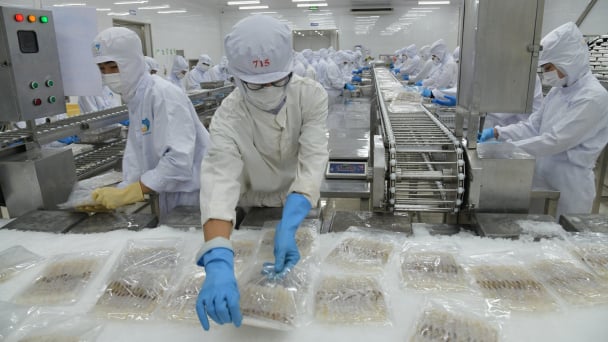
(VAN) This represents the most significant growth in the first quarter in the past four years. From January to March 2025, the export turnover of AFF products was 15.72 billion USD.
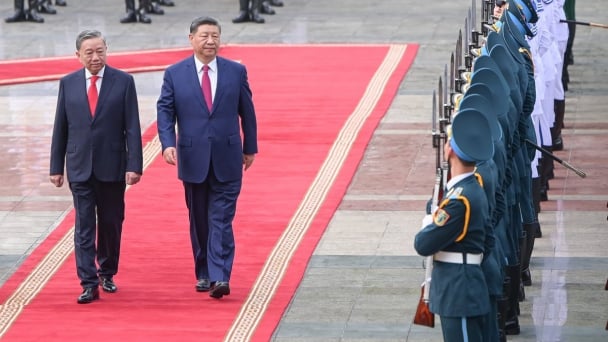
(VAN) On April 14, at the Presidential Palace, Vietnam General Secretary To Lam chaired the welcoming ceremony for General Secretary and President of China Xi Jinping, who is on a two-day state visit.
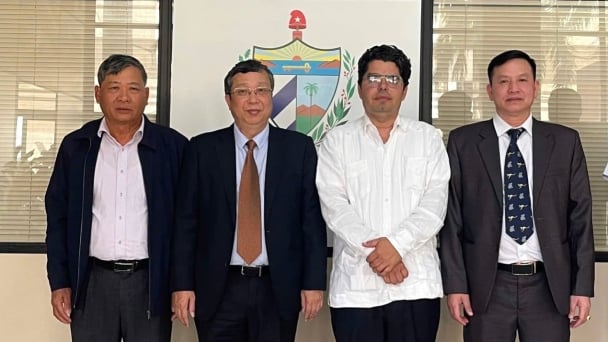
(VAN) The Vietnam-Cuba technical cooperation project to develop rice production phase 5 (2019-2025) has supported Cuba in improving varieties, increasing rice yield and quality.
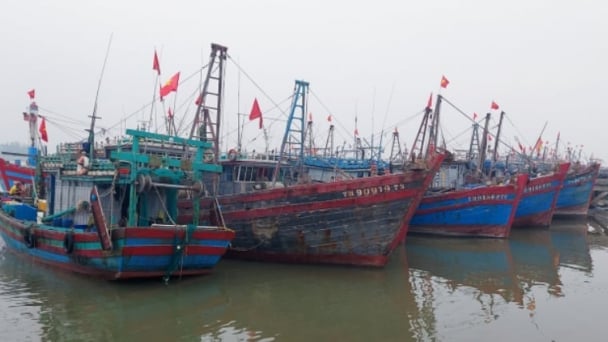
(VAN) The Deputy Minister of Agriculture and Environment underscored the necessity of addressing IUU fishing at the grassroots level and linking it to the accountability of local authorities.
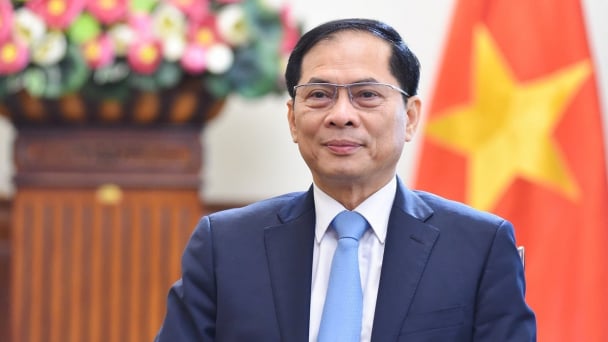
(VAN) According to Deputy Prime Minister Bui Thanh Son, through this P4G Summit, Vietnam aims to convey the message of transforming its growth model towards rapid and sustainable development.
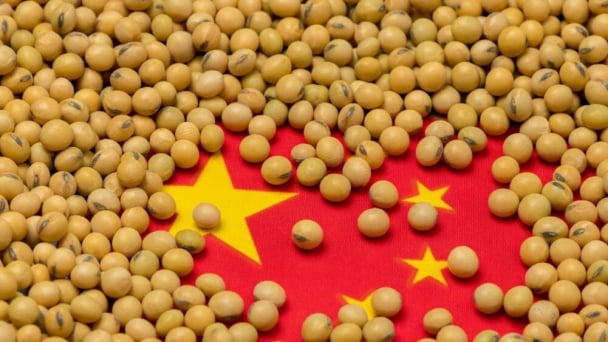
(VAN) Soybean production has been a priority for China to ensure food security, with increased soybean cultivation and yields highlighted in the annual No. 1 Central document.
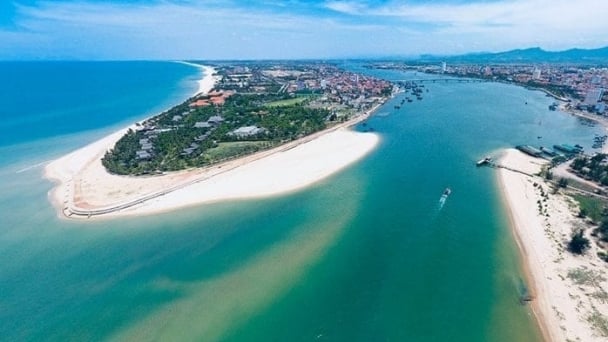
(VAN) Vietnam Sea and Islands Week 2025 is expected to take place in Quang Binh, featuring a series of meaningful activities aimed at protecting the ocean through green technology solutions.